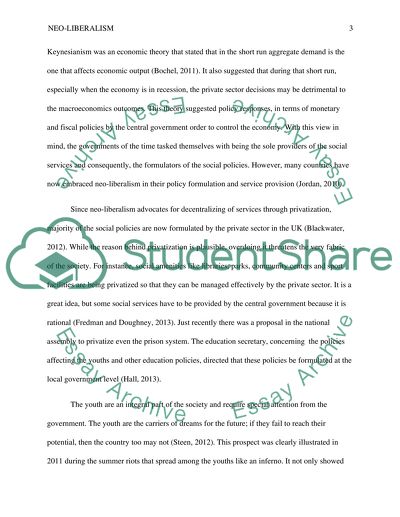Cite this document
(“Youth and Social Policy Neo-liberalism Essay Example | Topics and Well Written Essays - 1000 words”, n.d.)
Youth and Social Policy Neo-liberalism Essay Example | Topics and Well Written Essays - 1000 words. Retrieved from https://studentshare.org/sociology/1490128-youth-and-social-policy-uk
Youth and Social Policy Neo-liberalism Essay Example | Topics and Well Written Essays - 1000 words. Retrieved from https://studentshare.org/sociology/1490128-youth-and-social-policy-uk
(Youth and Social Policy Neo-Liberalism Essay Example | Topics and Well Written Essays - 1000 Words)
Youth and Social Policy Neo-Liberalism Essay Example | Topics and Well Written Essays - 1000 Words. https://studentshare.org/sociology/1490128-youth-and-social-policy-uk.
Youth and Social Policy Neo-Liberalism Essay Example | Topics and Well Written Essays - 1000 Words. https://studentshare.org/sociology/1490128-youth-and-social-policy-uk.
“Youth and Social Policy Neo-Liberalism Essay Example | Topics and Well Written Essays - 1000 Words”, n.d. https://studentshare.org/sociology/1490128-youth-and-social-policy-uk.


